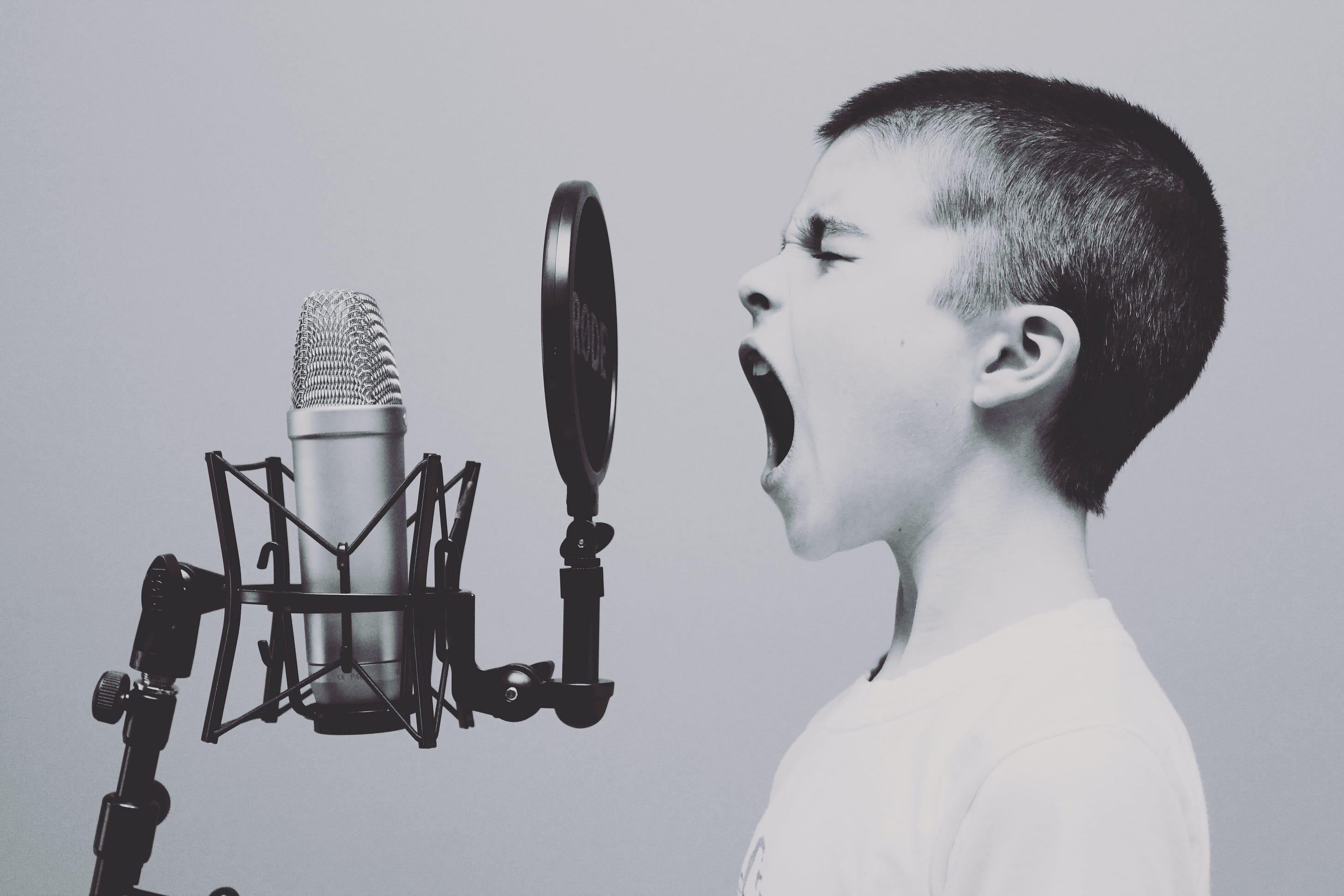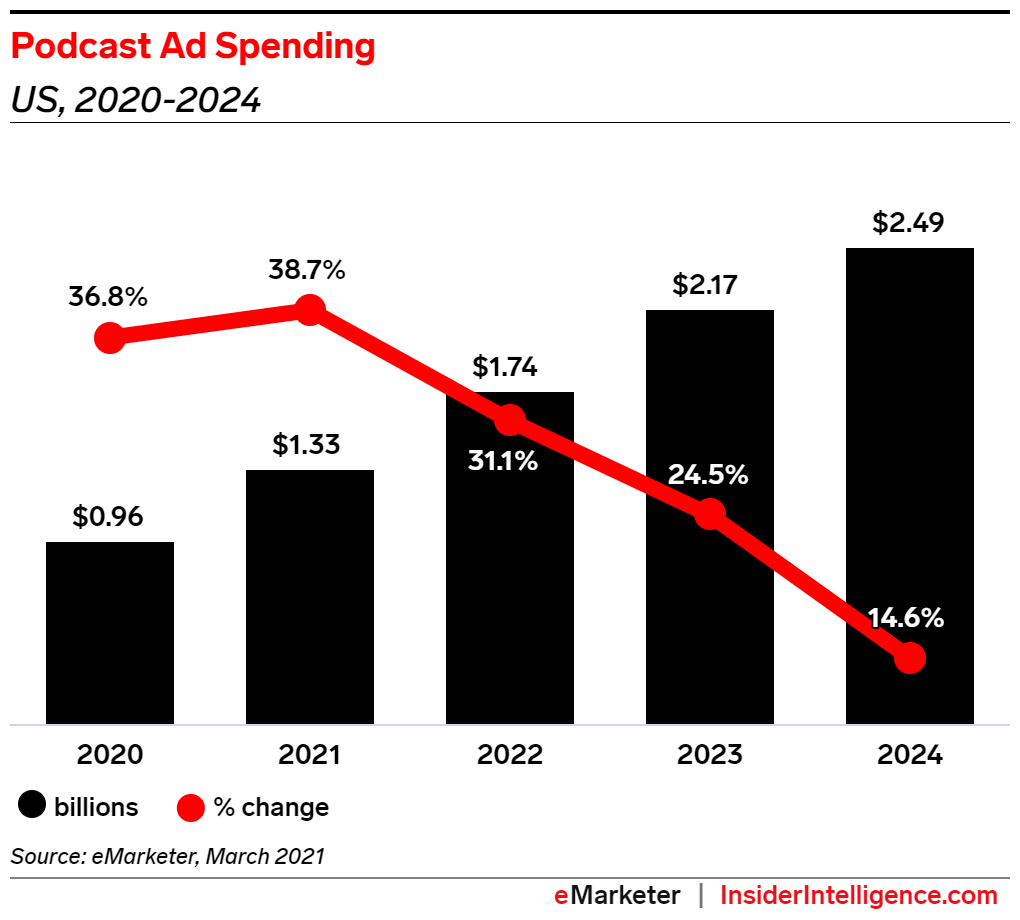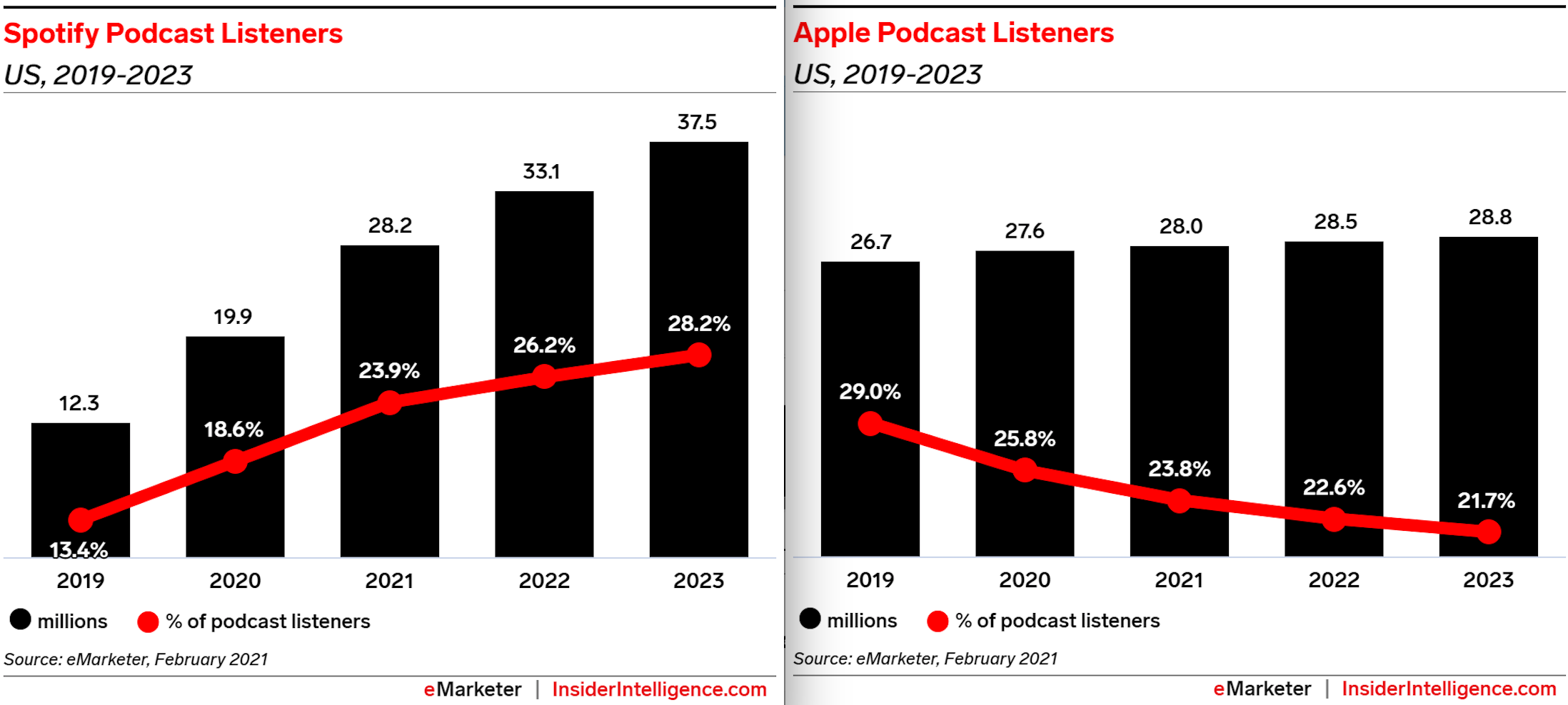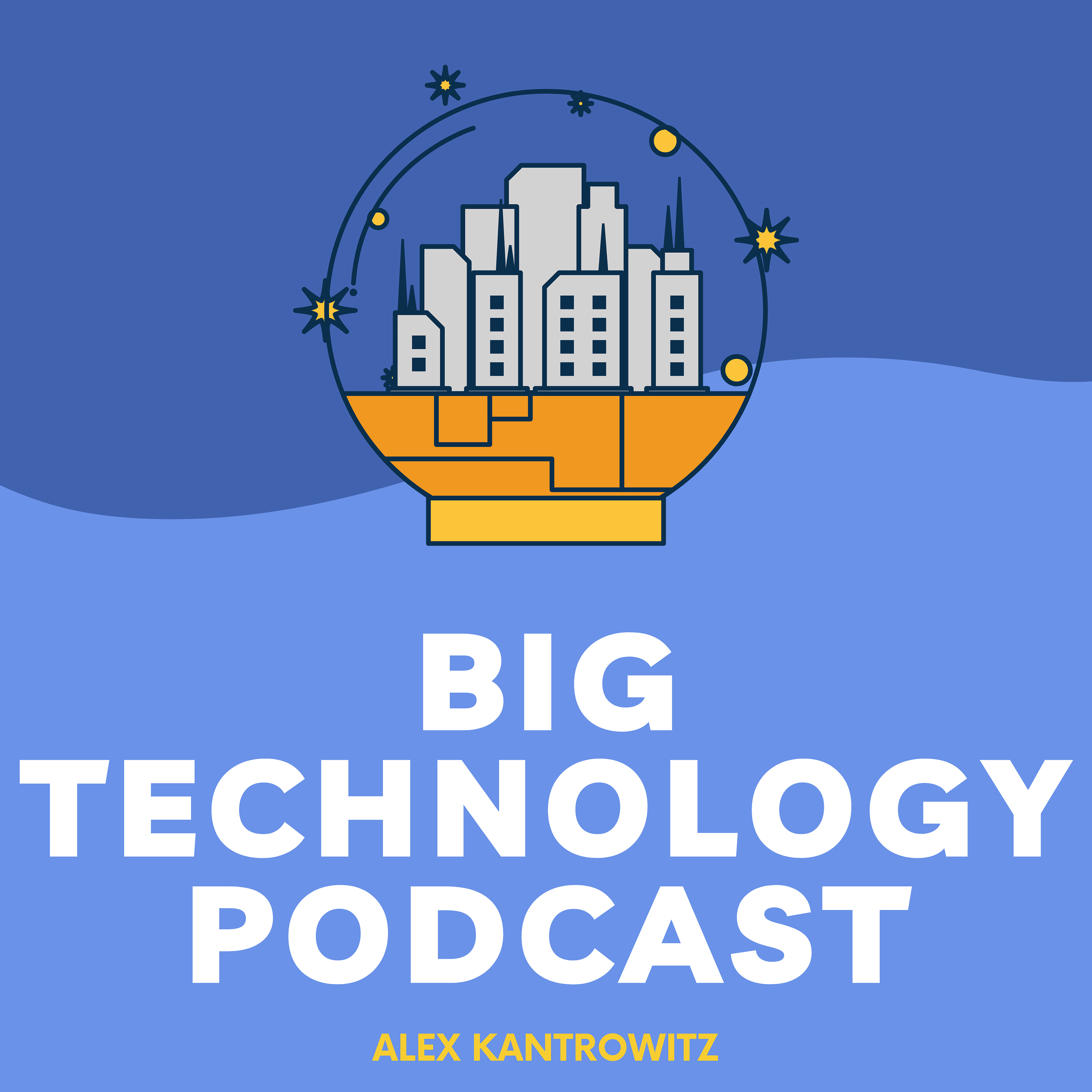Welcome back to Big Technology! This week, we dig into the podcast market, which I learned still hasn’t sniffed its potential. And now a word from our sponsor, Flatfile:
Flatfile Portal is an intuitive data import wizard that automatically matches your spreadsheet column headers, validates fields like dates or zip codes, and ensures that data is formatted correctly for your app. That frees you, your engineers, and your customers from having to manually format spreadsheets for hours — without needing to build a clunky CSV importer.
Why Podcasting Is Still A Massive, Untapped Market Opportunity
For at least the past five years, most experts would tell you the podcast market was saturated. Everyone has a podcast, they’d say, and the window of opportunity to break in was closed. Podcasting technology had some room to grow, but an RSS feed and a Play button mostly did the trick. Apple, the company that put the ‘pod’ in ‘podcasts,’ even seemed to forget the genre existed. It updated its podcasting app about as often as Tim Cook praised Mark Zuckerberg.
But recently, and seemingly out of nowhere, some of the world’s largest tech companies have made podcasting a priority. Apple rediscovered its app, updating it with paid subscriptions and better discovery. Spotify built podcasting into its core product and signed deals for exclusive shows (the latest of which it announced this week). Facebook decided it wanted to be the home of podcast discovery. And Twitter waded in with audio tweets and Spaces.
Behind this surge of interest is an increasing recognition that podcasting has far more room for growth than many anticipated. New technology has made listening more accessible. New business models are opening up opportunities for a middle class of podcasters. And podcasting’s potential for expansion seems relatively endless given how little it’s encroached on its analog alternatives so far.
“We're certainly early,” Mark Zgutowicz, who covers Spotify for Rosenblatt Securities, told me. Of every 100 minutes people spend listening to audio on average, they spend 42 on AM/FM Radio and only six on podcasts, Zgutowicz said, citing Edison Research. “That tells me there’s a ton of room left.”
The total number of people who listen to podcasts makes it even more clear that adoption is still in its early stages. Terrestrial radio still reaches 91% of U.S. adults each week, yet only 107 million Americans listened to podcasts last year, per eMarketer. For radio, that translated to more than $10 billion in ad revenue, while podcasts earned less than $1 billion.
There is reason to believe, however, that podcasts are going to start eating into terrestrial radio’s lead, especially given that they’re overcoming the technical challenges that once held them back. Podcasting apps have long been terrible to use, but they’re starting to improve, especially after Spotify’s significant investment in the format forced the rest of the industry to up its game. Playing podcasts while driving — a key use case — has also been a pain, but that’s getting easier with in-car entertainment systems like CarPlay. Connected speakers like the Echo and Google Home make turning on a podcast in the house as easy as the radio. And wireless earbuds like AirPods are turning podcast listening into a natural habit, where people listen while they wash dishes, go for walks, or wait for the bus.
“AirPods or wireless headphones are actually a major driver in this,” Jeremy Lermitte, co-founder of RedCircle, a podcast technology company (which I use to host Big Technology Podcast), told me. “It’s is easier than ever before to listen passively to audio.”
By ignoring its Podcasts app for so long, Apple has actually helped podcasting technology improve by inviting competition. Spotify — looking for its “first, second product” and seeing the opening Apple left — decided to jump all the way in, betting that becoming the go-to podcast app would help it increase music subscription sales. Spotify’s slowly cut into Apple’s lead in recent years, and now the market is wide open, making competing based on product meaningful again.
And though there have been lots of podcasts, only a limited number have been good. That’s changing too as the format figures out its business model. A ‘middle class’ of podcasters are now emerging, funded by fans who will pay to subscribe to their shows. These shows can’t generate mass audiences to support themselves with ads, but they are finding ways to sustain themselves. Apple and Spotify see enough potential in paid subscriptions that they’re building them into their products, and other companies that enable them are growing quickly.
“The top 10 podcasters on Supercast now gross $6M+ annually,” Jason Sew Hoy, the CEO of Supercast, which enables podcast subscriptions, told me. “We see podcasters making 2-3x when combining subscription and ad revenue, compared with ads alone.”
Advertising on podcasts, meanwhile, is poised to balloon. It’s set to go from less than a billion dollars in 2020 to $1.33 billion in 2021 and $1.74 billion in 2022, increases of more than 30% per year, per eMarketer. As more ad money goes to podcasts, the prospect of earning it will inevitably attract more podcasters, who will create a more extensive selection of shows, which will draw in more listeners. It’s a flywheel that’s just starting to spin.
Further Reading:
Twitter Should Make a Podcast App (Alex Carter / Medium)
Joe Rogan Got Ripped Off (Andrew Wilkinson / Supercast)
News Briefs:
Even If Epic Loses Against Apple, Developers Could Still Win (Bloomberg)
When a bullet whizzes by your head, you might change some things about your life even if it doesn’t hit you. When its trial with Epic — the developer of Fortnite — concludes, this is what might happen with Apple. Even though Apple is likely to win the court case, it may still make some changes to its developer policies so it can avoid going back to trial, Bloomberg’s Mark Gurman writes. This story is the best perspective I’ve read on the trial so far.
Tech critic Lina Khan gets bipartisan committee nod for FTC post (Politico)
Lina Khan — Amazon’s worst nightmare — just got one step closer to taking on the company as an FTC Commissioner. The Senate Commerce Committee endorsed her nomination on Wednesday, with a bipartisan group of Senators voting to move her nomination forward. With eight Republicans on the committee throwing their support behind Khan, it now seems to be all but certain that her nomination will go through. Jeff Bezos may be getting out just in time.
This week on Big Technology Podcast: Amazon Unbound Author Brad Stone On How Nerdy Bezos Turned Into Ripped Bezos
Brad Stone is the author of Amazon Unbound, a new book about the inner workings of Amazon. Stone joins Big Technology Podcast to discuss the book, Bezos's transformation, Amazon's culture, and what's in store for the company now that Bezos is leaving the CEO role.
To subscribe to the podcast and hear the interview for yourself, you can check it out on Apple, Spotify, or wherever you get your podcasts.
If you liked this post from Big Technology, why not share it?






